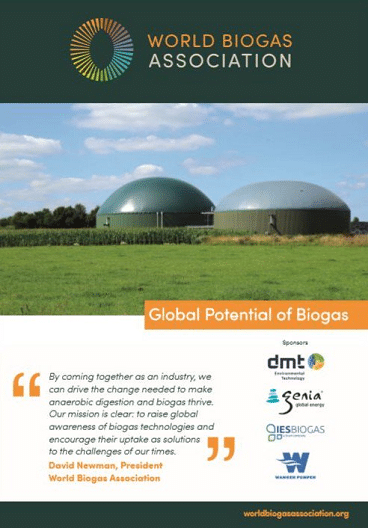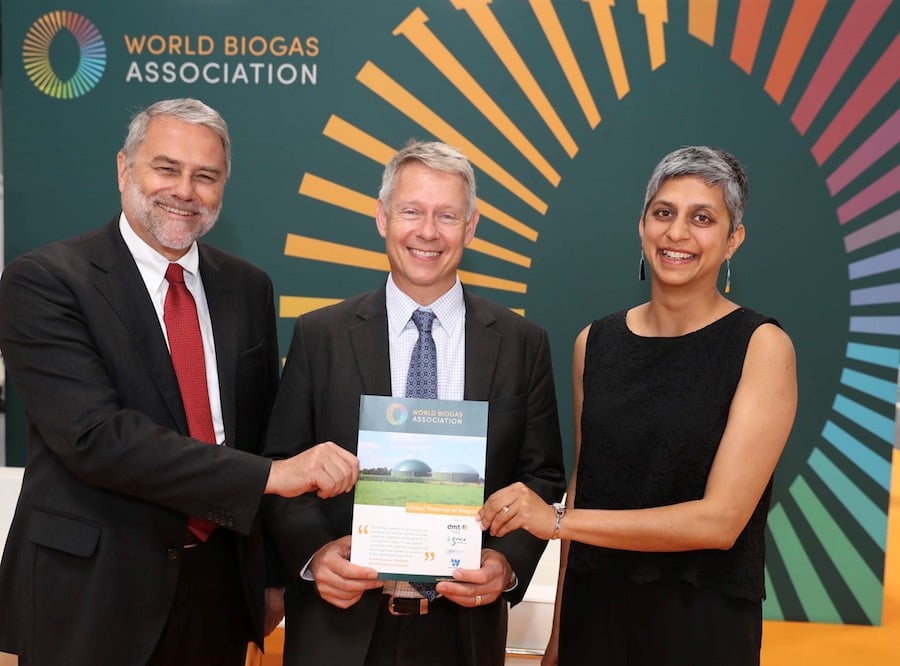
Global Potential of Biogas
New landmark report from WBA
This report aims to highlight the potential of AD as a technology to generate renewable energy, abate GHG emissions and recover organic nutrients and carbon for use on soil. The report also sets out the potential of AD to help meet the climate change targets under the Paris Agreement.
The development of alternative waste treatment methods (rather than simply dumping them in open spaces) and the need for non-fossil fuel-based energy sources (substituting coal, oil and gas), have led to the growth of the anaerobic digestion (AD) industry which produces biogas.

The key finding of this report is that AD has the potential to reduce global GHG emissions by 3,290 to 4,360 Mt CO2 eq., which is equivalent to 10-13% of the world’s current greenhouse gas emissions. This is achieved through the generation of renewable energy in the form of biogas from the anaerobic digestion of wastes and landfill gas, combined with emissions avoided through the management of organic wastes and avoided fossil fertiliser manufacture, crop burning and deforestation, using technology available and widely used today.
The report was launched at the World Biogas Summit on 3rd July, 2019.

WBA President David Newman (left) and Dr Sarika Jain, author (right), present the Global Potential of Biogas report to Niclas Svenningsen, of the UNFCCC, at the World Biogas Summit 2019.

